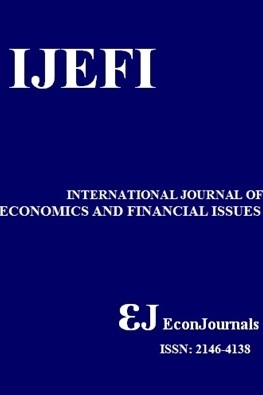Impact of Liquidity Level on the Monetary Policy Transmission Effectiveness of the Moroccan Central Bank (Bank Al Maghrib)
Impact of Liquidity Level on the Monetary Policy Transmission Effectiveness of the Moroccan Central Bank (Bank Al Maghrib)
Monetary Policy Transmission Liquidity, VAR modeling.,
- Başlangıç: 2011
- Yayıncı: İlhan ÖZTÜRK
Foreign Capital Inflows and Growth: An Empirical Analysis of WAMZ Experience
Anthony . ORJİ, Akachukwu Stanley UCHE, Elijah Ayobami ILORİ
Does Currency Substitution Affect Exchange Rate Volatility?
Hisao Kumamoto, Masao Kumamoto
An Examination of Fisher Effect for Selected New EU Member States
Harun UCAK, Ilhan OZTURK, Alper ASLAN
Siti Nur Aqilah Ab Wahab, Nur Ainna Ramli
Mesut BALIBEY, Serpil TURKYILMAZ
Mustafa Serdar Basoglu, Turhan Korkmaz, Emrah Ismail Cevik
The Importance of Cultural and Gastronomic Tourism in Local Economic Development: Zile Sample
Mehmet Kocaman, Emel Memis Kocaman
Hakan MIHCI, Mehmet Tolga TANER
Is Implied Taylor Rule Interest Rate Applicable as a Carry Trade Strategy?
